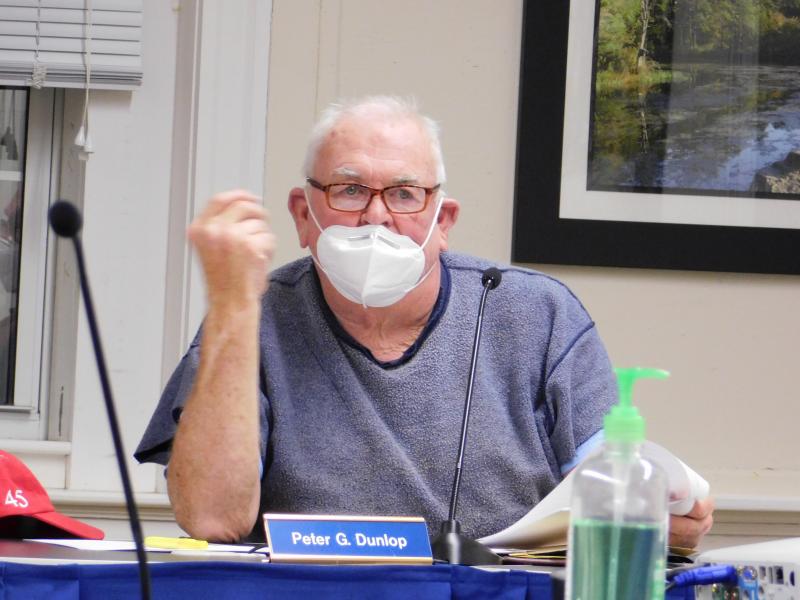Sewer Commissioners approve moratorium on new connections
The Sewer Commissioners unanimously voted to approve a moratorium on issuing any new capacity commitments for the next nine months at their October 22 meeting.
The water treatment plant is operating at about 76 percent capacity, which is near the 80 percent threshold triggering a Department of Environmental Protection process that would require the town to begin planning to expand the plant’s capacity or more permanently limit new connections.
The nine month date was chosen because two new equalization basins that would hold excess flow on busy or rainy days should be completed by then. The basins, which would cost $9 million, were set to be funded at the Oct. 26 Town Meeting, which has been postponed to some unknown future date.
The longer Town Meeting is delayed, the longer it will take for the basins to be built, meaning that there is a chance the moratorium will need to be extended.
The water treatment plant currently has the capacity to treat 1.56 million gallons of flow each day, as it is limited by the amount of treated water that can be discharged into the Agawam River.
The plant itself could treat up to 2 million gallons of flow each day once the town constructs the new outflow pipe into the Cape Cod Canal -- a project that has been discussed for years and would involve collaboration with the Massachusetts Maritime Academy in Buzzards Bay. The Sewer Commissioners signed a contract earlier this month with an engineering firm that says it could drill the pipe on a direct route from the treatment plant to the canal, coming up briefly near Onset Avenue and again at Mass Maritime, although it’s unclear how long it would take for that project to be complete and how much it would cost.
So far, only $66,000 for the initial engineering work has been approved.
In addition to being nearly at capacity in the treatment plant, the Sewer Commissioners have signed a number of commitments with projects that are in progress or yet to begin.
Russ Kleekamp, an engineer with GHD, said that the commitments add up to 275,000 additional gallons a day, which would bring the plant to 93 percent of its capacity.
And that’s without factoring in the 500,000 daily gallons promised to A.D. Makepeace in the Business Development Overlay District.
Including those commitments, the facility would be at 98 percent of the plant’s 2 million gallon per day capacity.
“We should have done something beforehand. What are we going to do? We knew this was going to happen, and we kept approving,” said Sewer Commissioner Donna Bronk. “We’re in the sh*tter, that’s where we are.”
Guy Campinha, the director of the water pollution control facility, said that there were a number of new sewer connections in progress: the Great Hill Mobile Home Park has a number of homes connecting, and a new gas station, Starbucks, and Aspen Dental are being built on Cranberry Highway. The Starbucks and Aspen Dental have secured sewer capacity commitments, and will be able to continue as planned.
The prospects for other projects are still unclear.
Those who are in areas with sewer hook-ups who still have a septic system will most likely be able to connect to the sewer system in the event that their septic system fails, as most homes that match that description have been factored into the existing capacity.
The facility is also plagued by high inflow and infiltration. Inflow and infiltration is the stormwater that makes its way into the treatment facility, mainly through cracked pipes and from sump pumps that are illegally connected to the sewer.
Campinha said that for every inch of rain that falls, the facility can expect an additional 110,000 gallons of flow.
That level of infiltration means that the plant needs to be able to accommodate spikes of activity, which is already difficult. Kleekamp said that there have been a number of unauthorized discharges in the spring season over the last few years because rainy days stress the plant beyond its capabilities.
The commissioners discussed “sunsetting” some of the commitments they have made, and thought they could probably legally tell those commitments that if they didn’t begin using the flow within the year, that commitment would be considered moot. Most sewer commitments the town has already have that provision, requiring those who haven’t used the commitment within the year to re-apply, but the policy hasn’t been regularly enforced in the past.
It is unclear whether this clause applies to agreements like the one allotting 500,000 gallons daily to A.D. Makepeace as part of the business development overlay district.
Additionally, the group talked about various strategies to minimize infiltration.














